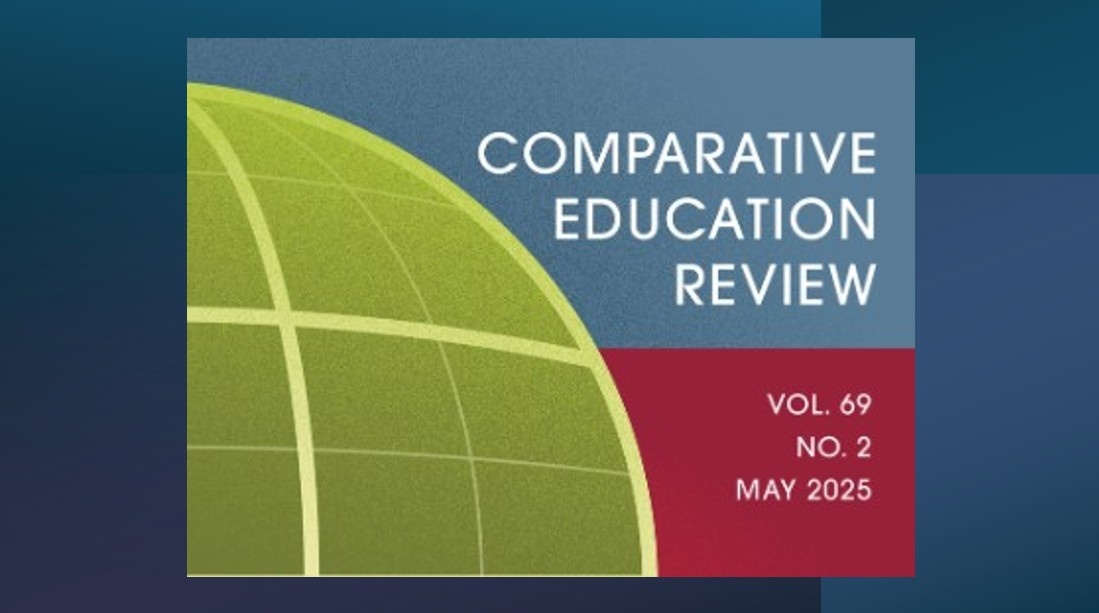“Bilingualism, Conflicts, and Language Ideologies in Education Policies: The Case of Cameroon”
In a compelling article published in Comparative Education Review, Doctoral Fellow Camille Fabo and Professor Garnett Russell explore the complex intersection of language, conflict, and education policy in Cameroon. Their article, titled “Bilingualism, Conflicts, and Language Ideologies in Education Policies: The Case of Cameroon,” examines how competing language ideologies have fueled political tensions—and how education is both a reflection and a point of tension for these dynamics.
Language as a Site of Struggle
Cameroon is officially bilingual, recognizing both French and English as the medium of instruction. However, in practice, the authors show that French has been dominant, leading English-speaking communities to feel marginalized and contributing to the country’s ongoing Anglophone crisis. From the view point of the separatist Anglophones, Education policy has played a key role in this marginalization, reinforcing both underrepresentation and the absence of a culturally and linguistically responsive education system..
What sparked their interest in this topic?
Fabo and Russell were initially drawn to this topic by the Anglophone crisis and the demands Anglophone communities were making around schooling, curriculum, and language. This led them to ask: What are students actually taught in school that might contribute to such deep social divisions? Even more striking was the realization that in a country with over 200 ethnic groups and local languages, it was the bilingual divide—not ethnic or cultural differences—that sparked the most intense political and violent tensions.
Education at the Heart of the Crisis
Fabo and Russell’s research dives deep into how language ideologies show up in education policies and learning materials. By analyzing official policy documents, curricula, and textbooks used to teach civics, history, and geography, they uncover the powerful role education plays in shaping national identity. Their findings reveal notable differences between how language and unity are framed in Anglophone versus Francophone materials. While Francophone textbooks often promote a vision of unified national identity, Anglophone materials reflect a more contested and fragmented narrative. Rather than fostering inclusion, the country’s bilingual education system has become a site of imbalance—intensifying the very divisions it was meant to bridge.
What was the most surprising finding?
“The most unexpected discovery was the patent inconsistencies in nation-building narratives across educational subsystems. These differences reflect the distinct colonial histories of the Anglophone and Francophone regions and reveal how historical memory is taught in fundamentally different ways.”
Challenging Dominant Ideologies
Camille Fabo and Professor Russell highlight how dominant language ideologies—those that privilege certain languages and ways of speaking—shape how education is designed and delivered. Their research reveals how communities are resisting these norms and advocating for more inclusive, multilingual approaches that reflect Cameroon’s complex linguistic reality.
Implications for Conflict-Affected Contexts
This research speaks to broader questions in the field of education and conflict: How can language policy promote equity rather than exclusion? What happens when the language of instruction becomes a tool of power? The article offers critical insights for scholars and practitioners working in multilingual, conflict-affected settings.
What do they hope readers take away?
The authors hope readers walk away with a deeper understanding that education, policy decisions, and language are never neutral—they are ideologically motivated and often central to power struggles. In multilingual contexts, education plays a key role in shaping social cohesion and must be approached with thoughtful political and curricular consideration.
Read the full article here:
Bilingualism, Conflicts, and Language Ideologies in Education Policies: The Case of Cameroon - Published in Comparative Education Review, Vol. 69, No. 2, May 2025
